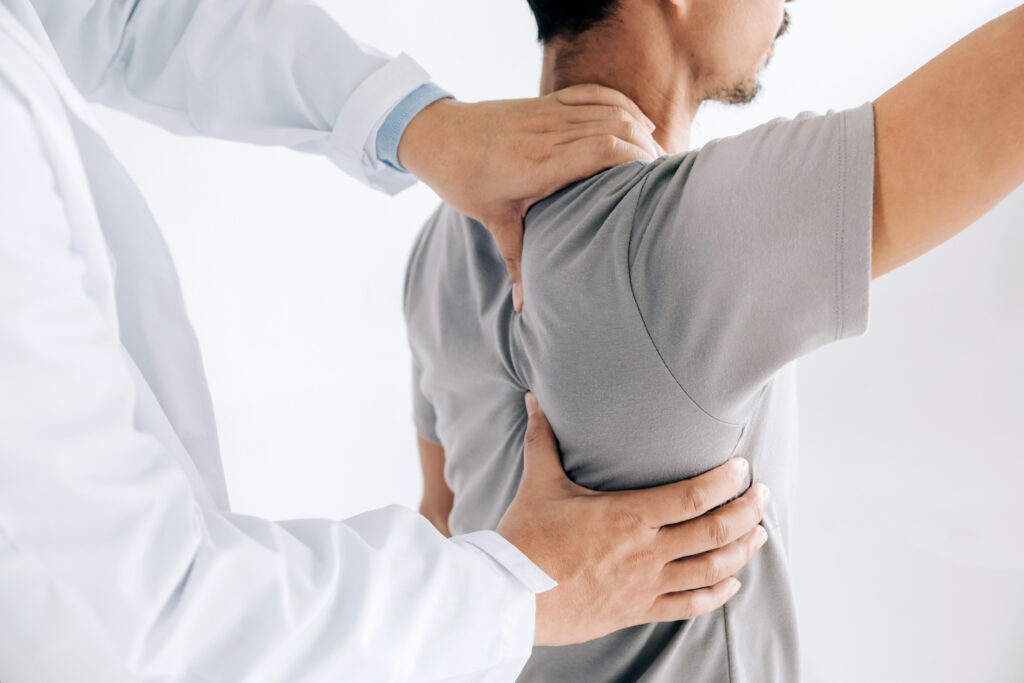THIS POST IS PART OF THE ULTIMATE GUIDE TO ORTHOBIOLOGICS
Tendonitis is the inflammation of your tendon, the tissue connecting your muscle to your bone. This can happen in any major joint and usually happens because of overuse. Consistent running, walking or cycling make this a very common hip injury.
Anatomy
Your hip is the largest ball and socket joint in your body. The rounded end of your thigh bone (femur) fits into the circular depression in your hip (pelvis).
Several muscles control the movement of your hip joint. These are some of the most important muscles in your body because, without them, you would not be able to lift your knee and walk.
Some of the muscles include gluteal muscles, attaching your hip to your buttocks, the iliopsoas muscle attaching the hip to the thigh bone and the femoris muscle attaching the patella (kneecap) all the way to your hip.
Your muscles attach to your bones by thick little pieces of tissue called tendons. When the muscles attached to your hip are flexible and toned, it protects your tendons from irritation and inflammation.

What causes hip tendonitis?
Hip tendonitis tends to flare up when your tendon is under significant stress from overuse.
Tendonitis can happen because of repetitive movement. Daily activities like walking, running or cycling are causes of hip tendonitis and make those movements very painful. These movements put stress on your tendons, especially without proper stretching.
Participating in a new sport without training causes your muscles to work harder because they are not equipped to handle the new movements. This creates tension on your tendon, which leads to inflammation.
What are the symptoms of hip tendonitis?
- Gradual aching hip pain
- Tenderness around the tendon
- Stiffness after rest or in the morning
- Uncomfortable hip contraction
- Mild swelling
- A “clicking” or “snapping” sound when you walk and your tendon rubs against your hip bone
Should I see a doctor for hip tendonitis?
If you are experiencing pain or stiffness or you notice inflammation in your hip, you should make an appointment with a physician.
Make an appointment with an OrthoIndy hip specialist
To determine whether you have hip tendonitis, the physician will ask you for a complete medical history, have you describe your symptoms and conduct a physical examination. An X-ray or MRI may be necessary to confirm the diagnosis and determine if there are other problems.
How do you treat hip tendonitis?
Hip tendonitis will not heal on its own if you continue the activity causing it. Treating tendonitis will include resting the affected tendon and muscle until your pain subsides. Your physician will begin by prescribing nonsurgical treatment, which will reduce inflammation and pain and improve function.
- Rest from the activity causing pain
- Ice your hip
- Compress with a bandage
- Elevate
- Over the counter pain medication
- PRP injection*
- Tissue and cell therapies*
- Physical therapy to stretch and strengthen the muscles
- Stretching well to improve flexibility
*New studies show PRP and tissue and cell injections can help alleviate pain caused by tendonitis. Ask your physician if you’re a candidate for this orthobiologics treatment. These injections are not guaranteed to take effect, but when they work, they most likely will decrease pain and improve function.
How do I prevent hip tendonitis?
Preventing hip tendonitis can be as simple as properly stretching before and after a workout. Stretching promotes blood flow to your muscles, decreasing your chances of pulling one.
If you have questions about exercise equipment, ask your physician or physical therapist. Improper use of heavy equipment can lead to strains on your muscles and tendons and could even lead to a tear.
When training for a new sport, develop your skills gradually so your muscles have time to build and they aren’t strained in the process.
Learn more about hip treatment at OrthoIndy
Schedule an appointment
Your well-being is important to us. Click the button below or call us to schedule an appointment with one of our orthopedic specialists. If your injury or condition is recent, you can walk right into one of our OrthoIndy Urgent Care locations for immediate care. For rehabilitation and physical therapy, no referral is needed to see one of our physical therapists.





